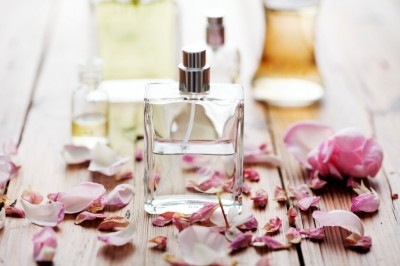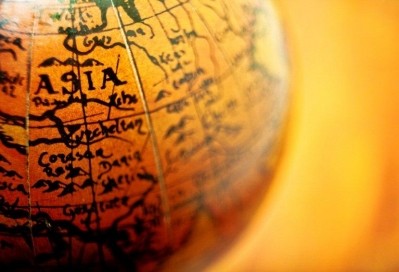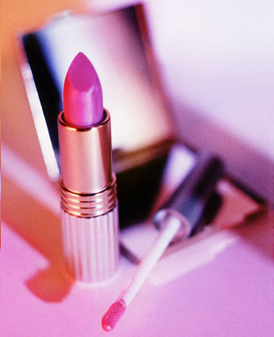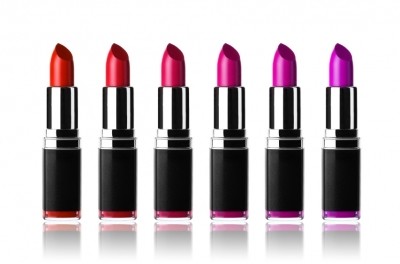Change of leadership in China could lead to hiccup for luxury cosmetic sales
All the big multi-nationals, including luxury brands associated with multi-national cosmetic players such as Estee Lauder, Elizabeth Arden and L’Oreal, have been broadening their footprint in the market in recent years, largely on the back of 'gifting', which entails businesses bestowing luxury gifts to potential clients.
But with a new government about to be assembled in Beijing under the leadership of Xi Jinping as party, a communist party school president, the direction the government will want to take economically could prove pivotal to luxury cosmetic players in particular as many businesses may want to hold back on the practise of gifting until they have a clearer picture of which direction the goverment is going to take.
Burberry underscores the importance of gifting to its China sales
Last week British fashion brand Burberry, which markets an extensive line of fragrances and cosmetics in China, confirmed in its interim report that it sales in the country have slowed markedly in the current quarter.
Stacey Cartwright, Burberry’s chief financial officer, said during a press conference that the slowdown in its China sales was attributable to the fact that fewer people are ‘gifting’ in China right now.
Gifting plays a very important part in Chinese business culture, with luxury gifts, including luxury cosmetics and skin care products, often bestowed upon potential clients.
However, Cartwright pointed out that until the new Chinese leadership is firmly in place, it is difficult for many business players to determine who their allies will be in the future, causing individuals to question who they gift to.
Economic future in China lacks visibility
With growth in the China economy continuing to slow in the past year or so, on the back of falling international demand for China-made consumer products, all eyes will be on the ministry for economy to see what initiatives it might initiate in an attempt at reinvigorating the economy.
Heading up those new initiatives will be Wang Qishan, who has been appointed has head of economic policies. Many of the leading multinationals are expecting him to initiate policies that will stimulate the economy, by encouraging industrial output and domestic consumption.
If those incentives do trickle down to the benefit of the cosmetics industry, it is likely to be makers of luxury products who will most benefit, particularly in view of the volatile revenues some of the leading players have seen in recent months.





![Latest developments from the South Korean beauty market. [Getty Images]](/var/wrbm_gb_food_pharma/storage/images/_aliases/wrbm_tiny/publications/cosmetics/cosmeticsdesign-asia.com/headlines/brand-innovation/korea-focus-able-c-c-kolmar-and-more-in-this-k-beauty-round-up/17357973-1-eng-GB/Korea-focus-Able-C-C-Kolmar-and-more-in-this-K-beauty-round-up.jpg)

![Able C&C has furthered its partnership with Japanese discount chain Daiso with new makeup launch. [A'pieu]](/var/wrbm_gb_food_pharma/storage/images/_aliases/wrbm_tiny/publications/cosmetics/cosmeticsdesign-asia.com/headlines/brand-innovation/a-pieu-and-daiso-launch-exclusive-2-makeup-line/17339117-1-eng-GB/A-pieu-and-Daiso-launch-exclusive-2-makeup-line.jpg)
![Down Under Enterprises is setting sights on the Asian market as environmental sustainability and traceability become increasingly important. [Getty Images]](/var/wrbm_gb_food_pharma/storage/images/_aliases/wrbm_tiny/publications/cosmetics/cosmeticsdesign-asia.com/headlines/market-trends/down-under-enterprises-shifts-focus-to-china-as-environmental-sustainability-traceability-come-into-the-spotlight/17304932-1-eng-GB/Down-Under-Enterprises-shifts-focus-to-China-as-environmental-sustainability-traceability-come-into-the-spotlight.jpg)
![News updates from Shiseido, Dr.Ci:Labo, Sephora, and more. [Shiseido]](/var/wrbm_gb_food_pharma/storage/images/_aliases/wrbm_tiny/publications/cosmetics/cosmeticsdesign-asia.com/headlines/brand-innovation/updates-from-shiseido-dr.ci-labo-sephora-and-more/17334944-1-eng-GB/Updates-from-Shiseido-Dr.Ci-Labo-Sephora-and-more.jpg)

![Clariant has underscored the importance of localisation strategies and distribution capabilities in China with beauty trends evolving at a rapid pace. [Getty Images]](/var/wrbm_gb_food_pharma/storage/images/_aliases/wrbm_tiny/publications/cosmetics/cosmeticsdesign-asia.com/article/2024/04/16/clariant-emphasises-importance-of-localisation-in-the-era-of-viral-trends/17327969-1-eng-GB/Clariant-emphasises-importance-of-localisation-in-the-era-of-viral-trends.jpg)
